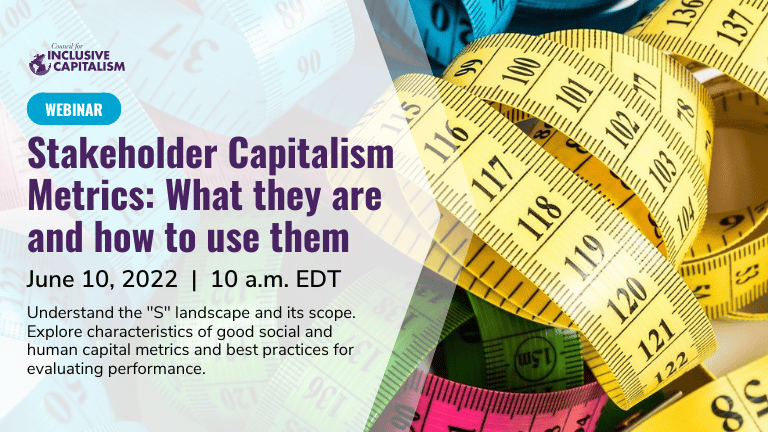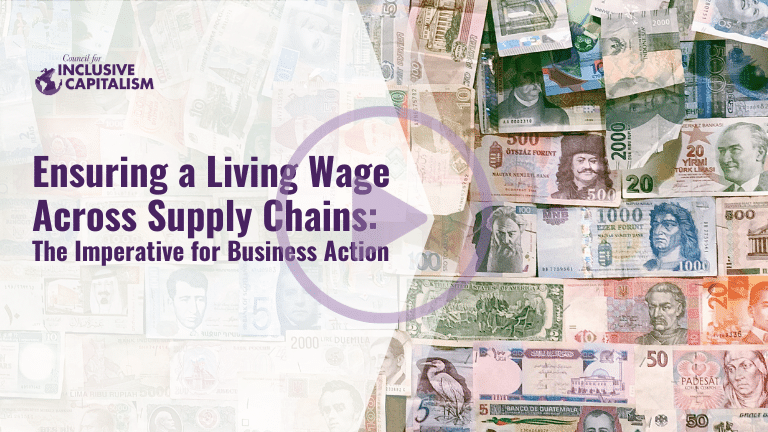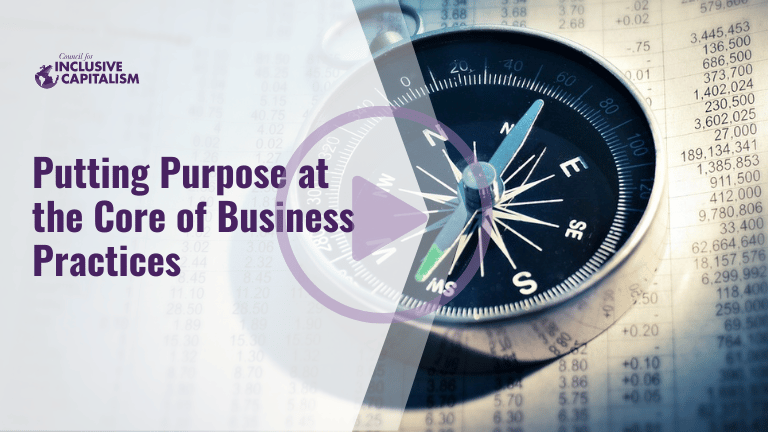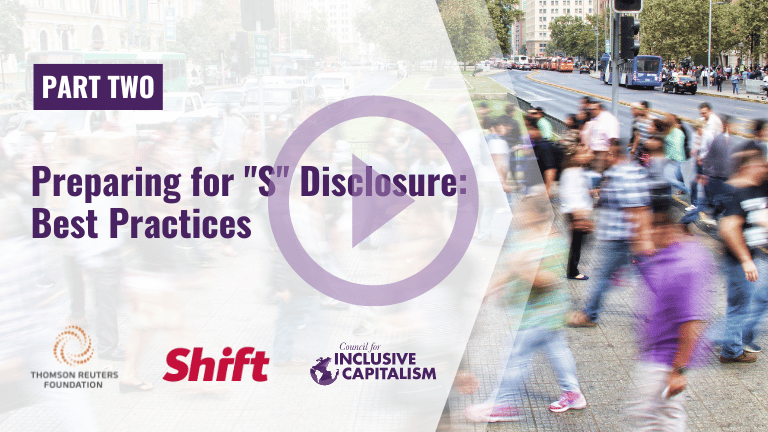Stakeholder Capitalism Metrics: What They Are and How to Use Them

Sharing progress isn’t always easy. People are demanding greater responsibility from the organizations they work for, buy from, or invest in. Measuring the impact companies have on people and the planet is essential to creating long-term value, yet public and private stakeholders have struggled to make clear progress amongst a number of competing standards, frameworks, and initiatives.
At the Council for Inclusive Capitalism, we believe in the power of example and the transformative effect our members’ publicly disclosed actions can have to advancing an inclusive and sustainable capitalism.
Earlier this year, the Council introduced an updated process to allow members to provide greater detail on their actions shared publicly on the Council’s commitments platform. With the help of close partners, these suggested measures have been mapped against leading curated metrics from existing standards, including the World Economic Forum’s Stakeholder Capitalism Metrics.
On June 10, the Council hosted our members for a webinar on why stakeholder capitalism metrics are important and how to apply them to improve reporting and business performance.
Speakers included:
- Emily Bayley, Head of ESG and Private Sector at the World Economic Forum
- Mary K. Cline, Senior Policy Advisor, Office of the Global Chairman and CEO at EY
- Joe K. Goodwin, Senior Vice President, Public Policy Executive at Bank of America
- Meredith Sumpter, CEO, Council for Inclusive Capitalism
ABOUT THE INCLUSIVE CAPITALISM LEARNING SERIES
This webinar was the first in a new series of events from the Council for Inclusive Capitalism to advance learning and adoption of inclusive and sustainable business practices within our community. We will provide members with opportunities to connect with fellow members and experts to exchange best practices, share tools and learning resources, and discuss what’s next throughout the year. Business leaders will be invited to share their experiences with a focus not only on the “what” of inclusive capitalism practices, but also the “how to” behind them.



